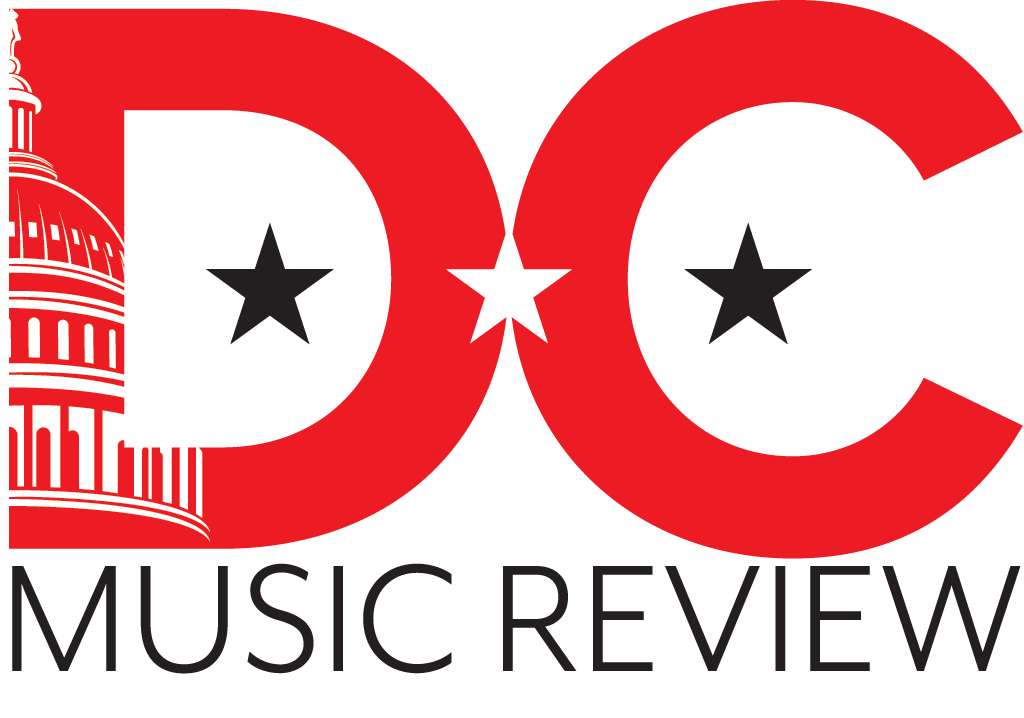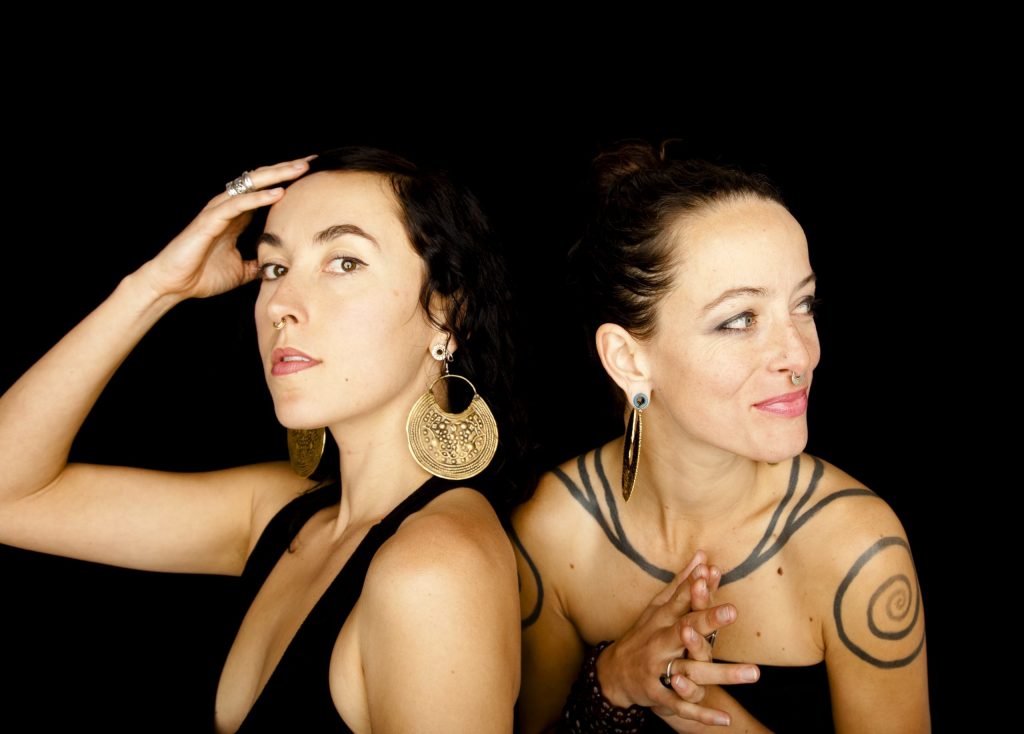Karin McLaughlin: Leah, thanks so much for chatting with me today.
Leah Smith: Sure, thanks for doing this.
KM: Well I want to jump right into it with the latest album, Leylines and just the meaning behind it. So as I read it, it’s the connections between certain places and things as far as experiences. So now, my question is, as it’s related to the album and in general – are leylines a personal thing or is it set in stone like they’re specific places in the world?
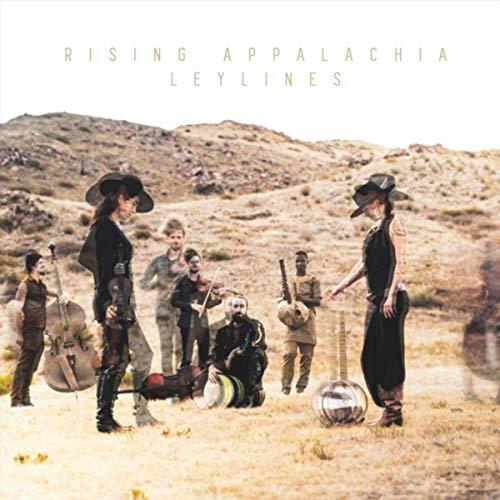
LS: Well, I think that we took the term with a lot of poetic license as that's what we do. Everything is run through the filter apart for us. A really interesting concept and term I mean, it's a nautical term. So it is it does have technical meaning in the navigating of this earth, but it also is a sort of pseudo scientific term around the undercurrent of certainly land masses of technical term. I think for Rising Appalachia and this album, we really took it with poetic license and for us, we're using it more as a conversation piece about the musical influences that we've brought into our work and into this album which pull in a lot of the ancestry of Southern Appalachian music. So we want to talk about the poetic leylines of music that we were raised with in the south. There is a very deep West African culture and Irish and Celtic culture. As far as that, it's not so much a technical term, it's much more of a creative lens for us.

KM: And then, makes even more sense that you incorporated the two new band members hailing from both the places you mentioned. I think that a lot of people may not realize the musical background as far as connections between especially West Africa and the banjo. Whenever I bring that up, a lot of people are like, ‘Wait, no, there's no way banjo was born in Africa’. Also, in this recording and this album, you guys did a lot of things different, right? You didn't record it in the south, you all stayed in this one place in California and then you brought in the two new band members. So you're marking some new leylines for Rising Appalachia this musical journey?
LS: Oh, totally. I think our relationship to the story of southern music has always been also to study musicology and the roots and the ancestory of music. I mean, that's just something that we're each obsessed with in our own world. So yeah, telling the story of where these instruments have come from, even if it's subtle and just in the underbelly of the work. A lot of people won't necessarily know that unless they're musicology students who are obsessed with the ancestry, but I think for us to be able to put those sounds and those references and that ancestry into the underbelly of the music feels really, really powerful and sort of alchemical for us.
KM: I also like that you guys both are from a suburb of Atlanta. Correct?
LS: Downtown Atlanta. We grew up in the heart of the city.
KM: Oh, okay. So my background as far as what I was growing up on musically was mainly Hip Hop and R&B. I've just in the last maybe 10 years, ventured out into the Americana and bluegrass realm and I know that you guys, growing up in that area had a lot of heavy influence by those genres as well. I really appreciate that, because there's not oftentimes when you get to go see bluegrass music and end up talking about hip hop, but I wanted to talk about some of your musical influences from that type of music.
LS: Totally! I mean, we try not to tokenize any any style of music. We grew up in downtown Atlanta and the folk music of our community was hip hop. That is what our peers were listening to. That's what our friends were making. That was the music that we were listening to and partying to and dancing to and celebrating to, you know, we were one step removed from OutKast and Goodie Mob. Dungeon Family would come and perform at our high school.
KM: That's awesome!
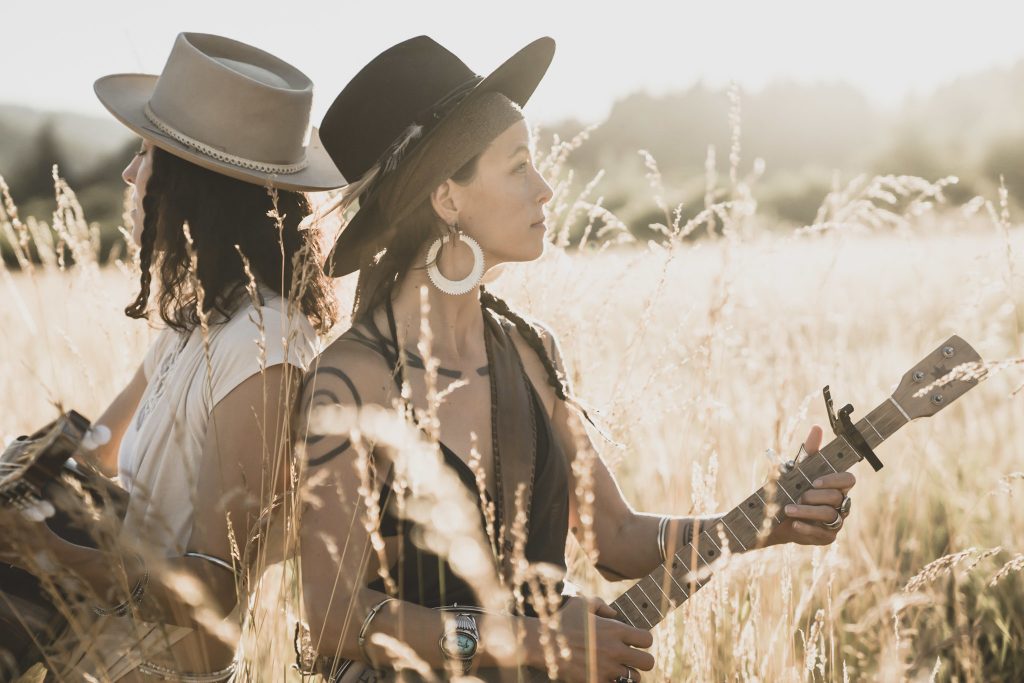
LS: I saw The Roots play a free concert in downtown Atlanta when I was probably like 14 and that was our folk music. Our parents played, you know, more of the fiddle and banjo music and we associated that with old people's music. We grew up with our friends listening to and loving underground hip hop and breakdancing and beatboxing and that was the music of our community. I think that that is starting to be talked about more, front porch music is a storytelling music and underground hip hop is 100% folk music. Commercial rap is a little bit of a different conversation where pop music lives, you know, that's not the same thing. The roots of hip hop, I mean, that is as rich of a folk music as any - it's a storytelling music. So that was a big, big part of our upbringing. When we made our first album and we were very naive and very green and we weren't trying to fuse and you kind of music in particular, we just were trying to create a sound for what we grew up with, which was these two different Southern languages coming together. It was the ballads and the gospel and the blues of our families generation and then the beats and the spoken word and the hip hop of our generation. That’s really the origin of Rising Appalachia - to rise out of Appalachian traditions and acknowledge all of these wider influences and create a modern soundscape that was very honest to us. That felt very true to us.

KM: Any chance there is a Dungeon Family and Rising Appalachia album might be coming (laughs)?
LS: (laughling) I’m so ready for it! We made the song "Filthy Dirty South" as a straight nod to the Dungeon Family. If we could get Goodie Mob or Andre 3000 Come on, that would be a dream!!
KM: So I'll keep my fingers crossed for that collab album.
LS: Yeah, well if you know anybody (laughs). You know, we do a medley and we do an old Goodie Mob song and mix it into one of our original songs. We only do it live, I don't think it's recorded and you know, a lot of our audience does not understand that reference.
KM: If you brought one of them on stage one show randomly, that would be so epic.
I also want to talk about a lot of other stuff that I like about you guys. I didn't watch the whole thing, but I saw a brief bit of the TEDx talk and your discussion about the slow music movement. You guys did a tour on a sailboat and you also done one on a train. I read one of your interviews where you talk about, just even the difference between being on a boat as opposed to in a van when you're doing your tour. What kind of influence do you think, personally, that would have on music as a whole if most artists really took more time touring like that?
LS: Great question, I mean, I am extremely biased towards this because I feel like I was born in the wrong era and I'm terrible with technology. I'm just a slower moving creature, but you know, I do think that we are having and seeing, as a national, a mental health crisis. I think it has to do with speed and it has to do with everyone being overworked and rushing and having too much on their plates. I think it is deeply in the music industry as well. Music is like our cultural bedrock. Every community in the world has had music to tell their stories and I think if the music industry itself would slow down a little bit more, we would just see an emotionally richer tradition.
In terms of the way our living, you know, we would have music, live music, and right now it's just on stage, you don't have it and maybe in churches, but you don't have music and in the daily culture of of our communities anymore not live music, and I think it would be really would be in service to all of our sanity and just have more of a slower relationship to the musicians to have the musicians be more available to be integrated into the places that they're playing and spending time. I mean, just basic, fundamental human culture would be really impacted I think.
KM: So, I think the word that I that comes up a lot for me when I'm reading about you guys as a band and just as people, is connected. It’s how important you feel that is in every aspect of music and touring and life in general. You guys are connected through protesting and activism and you're connected to the community when you travel and you tour and you go out to the farmers markets. You're connected to each other and the earth a lot more than I think, a good majority of people, in general, are and especially musicians, because of the lack of time available. How do you guys share that and make another connection with other artists, if at all possible?
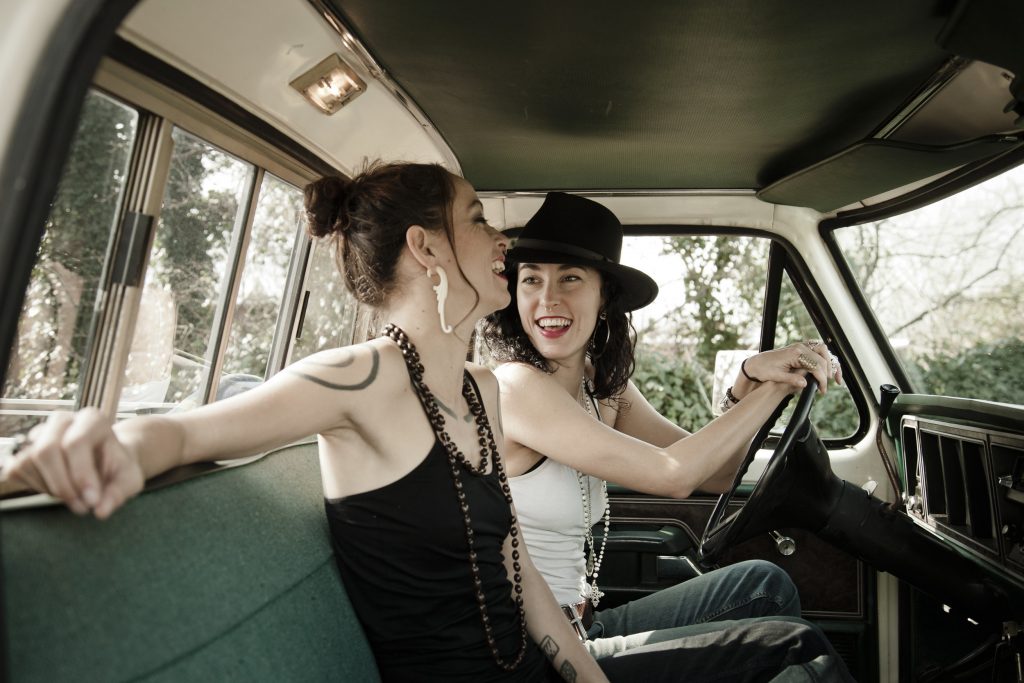
Rising Appalachia (Photo Credit: Chad Hess)
LS: Well, in a small way, I think we just try and create a public conversation around our ideas. So that idea of the slow music movement is a public domain. I mean, it is something that we sort of put a title to, but we want to be creating a blueprint that a lot of people can access and use and utilize and try and experiment with. It's an idea that both artists and hopefully industry can start chewing on. We make that a public conversation and then when we're fortunate enough to be able to bring different artists on the road with us, then that becomes a bigger conversation that we can just have with artists as they're up and coming and hopefully, spread some ideas.
I mean, it's not the smartest business move, so the industry never jumps on. They’re never like ‘Oh, right, great - you only want to play three shows a week?’ But I think that if the artists get a grip on it, and it helps people's longevity, then those are conversations we want to be having. I mean, there's a reason that a lot of performers die young. You know, there's overdose and there's suicide and it's a commonly known part of the pressures of performance. I think we need to be having lots and lots of conversations about other ways of doing it and about more sustainable steps regarding mental health and about personal self care. We just try and put that stuff in our conversations as often as possible.

Rising Appalachia (Photo Credit: Chad Hess)
KM: What is something that you wish that other people who don't get to experience the road and life in general the way that you guys do being musicians or even non musicians, that you could spread the word about as far how the connection that you guys build changes everything?
LS: I don't know, you know? It's a great question because like, for us, we're not nearly as connected as we would like to be. But you're right, for musicians, we have a lot more of that than is common. So, what would we like to share?
KM: Yeah, what would you say to someone maybe to encourage the possibility of maybe taking that path a little bit more often? Maybe, what has it done for you guys personally, and as musicians?
LS: Well, I think it's given us a long haul. It’s been 13 or 14 years and we've been touring pretty full time and we're still inspired and intact creatively. We're also not broken, not deeply addicted to anything, we're not haggard. Touring is brutal on anybody and everybody - it's just a really hard lifestyle. I do think we have always been looking at this with the long haul in mind and how can we do it in a way that is going to actually work.
I think the long haul has always been what we're going for. There’s the fast, high burnout where you get really famous really quick and you don't have any integrity. That's the opposite of what we've ever wanted. We wanted to figure out how to sustain this and I think that the payback is worth it and double and triple time, but it's over a longer period of time.
KM: I appreciate that you said earlier that you think you were born in the wrong time period. I was watching the video for “Cuckoo” and I love everything about it - the concept, the outfits. It looks like a speakeasy party that would just be a blast to be at. How did you guys come up with the concept for that and was that as much fun as it looked like to be a part of?
LS: Yes, well, we directed that and basically wanted exactly that concept and we called upon all of our friends. Every person there is a good friend and a part of our southern community.
That was all part of the story we wanted to tell. I mean, that's been part of our story from from the dawn of Rising Appalachia - it's let's tell the story of the beautiful, freaky, eclectic, artful, diverse south nobody realizes is here. That is such a bedrock of southern culture that is not what is the stereotype or even what is uplifted about Southern culture, you know?
So everyone in that cast are good friends of ours and we called upon them all and said, 'We're having an art party and we're filming and this is what we want - we want each of you to show up in the thing that you do'. Everyone kind of showed up doing what they do in real life and it's all just a bunch of magical freaks.
KM: It's like a backstage carnie kind of speakeasy maybe.
LS: Exactly, authentically a whole community of beautiful Southern folks who, you know, are telling their honest story. And the song itself is a traditional Appalachian song, but we brought in again, we brought in the West African influences, and we brought in an Irish tune in the middle of it. So it's, it's kind of telling that broader story kind of, from whatever angle you look at both historically but also, you know, in the in the reality of who is who is part of Southern culture now, right?
KM: Yeah, I wanted to definitely go to that party. I was like, 'Ooh, this is a nice little place I'd like to probably hang out and drink some moonshine at maybe'.
LS: (laughs) Yeah you would.
KM: So I don't like to talk politics, but as a band and two people that are very active and passionate about causes and things like that, do you see a lot of, or do you anticipate a lot of, writing and activity to be done being that next year is going to be an election year and all the stuff is going on around the world? You guys obviously have a very strong voice and I mean, I don't want to get obviously at all in the realm of political stuff, but just kind of as activists and being that, you know, next year is going to be such a big year.
LS: I have to say, it's not a very leadership perspective, I have a perspective on how I will want to lead our project and our public stance, but I also feel totally terrified (laughs), to be quite frank. I don't think we've ever been really involved in big politics because it feels so murky.
What we have tried to focus on is small, local, triumphs because that feels within our knowledge and within our vernacular and within our ability to impact. I think that we'll continue to do that no matter what. I think we'll continue to focus on, you know, local, on the ground strategy and I don't know that we have a platform for how to handle the bigger election. It feels really daunting and corrupt and I think that we're all just kind of watching right now and we're trying to figure out how we're going to swing it.
KM: Since we're talking about that whole world and the fact that you guys are coming to DC, which is the heartbeat of the political scene, do you guys have any anything else planned while you're in town, whether it's involving, any activist stuff or is there stuff that you guys like to do while you're in town in DC since you guys like to connect to the places you are so much?
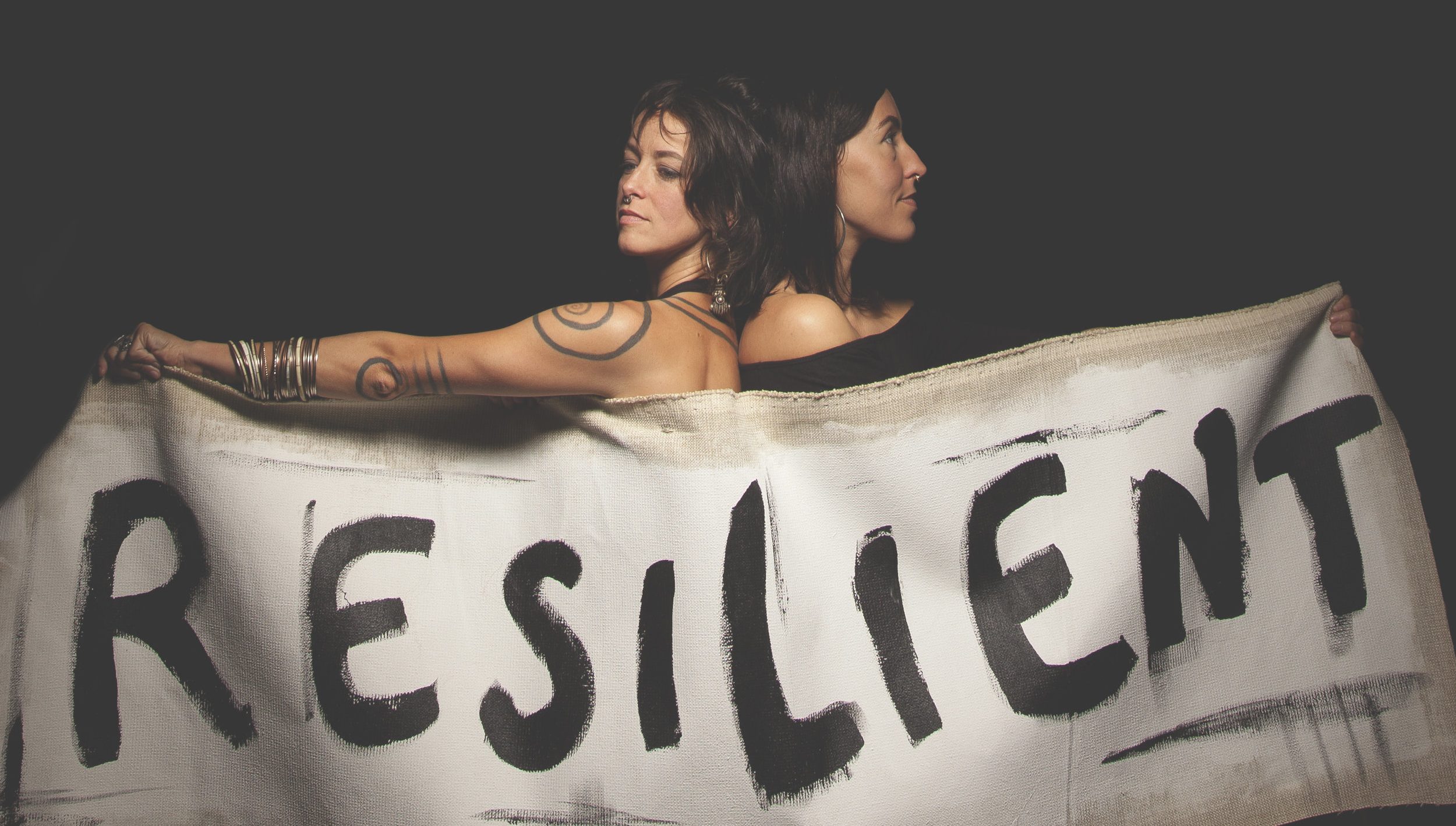
LS: There is a project called One Common Unity and they're based on public education and curriculum building, youth outreach project, they're one of my favorites in the whole country. We have almost always partnered with them and just kind of behind the scenes work with some of the local high schools in order to build some conversational components. This trip we're not, we're actually doing a Tiny Desk concert, so we'll be filming that. Hopefully we'll just be able to network with our bigger community there, we'll have nonprofits in the house so that folks that are there can get more information about what's going on on the ground.
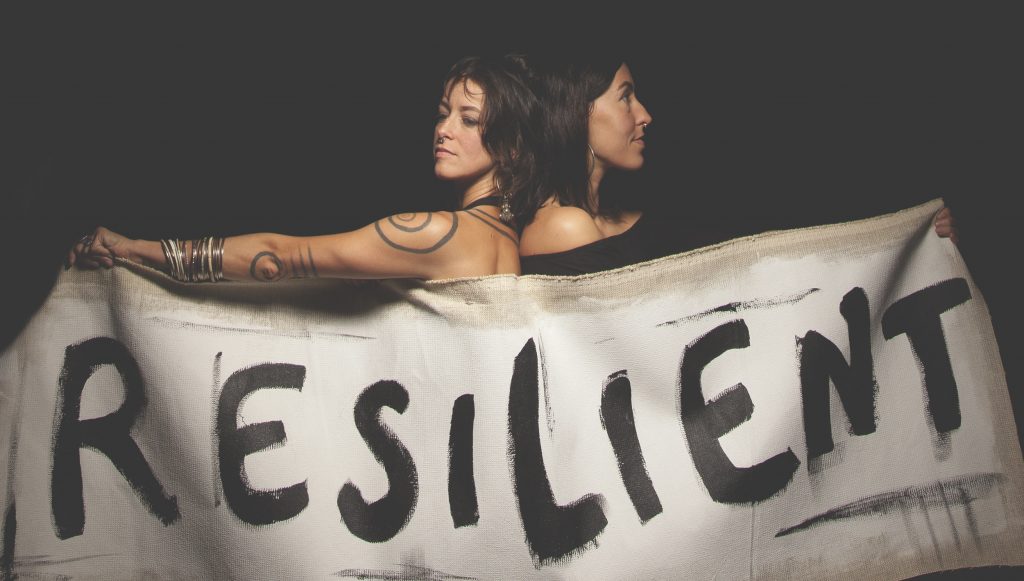
KM: Have you gotten to do any of the museums like the Native American Museum or the African American Museum? I feel like you guys would love doing that.
LS: Yeah, I spent a couple of hours at the African American Museum, which was not enough.
KM: Yeah, I feel like I was there all day and I could go back every day.
LS: Yeah, it's an amazing and profound concept and the way it's put together and the discomfort that is part of the the experience that leads all the way to the celebration, you know, it's just an amazing, amazing experience.
KM: I know you did that TEDx talk about the slow music movement, but if you could do any other topic for a TEDx talk, what would it be?
LS: Well, you know, I think my deepest passion is understanding how art impacts social change. I feel like so much of the conversations around social change right now are in protest and there's a lot of anger and there's a lot of hostility. I feel like art does the opposite. It rallies people together and it brings people to a softer understanding of our innate humaneness and that's something that is so fascinating to me is understanding the arts movement as a tools for release. That would be a long, lovely study for me.
KM: Now this generates another random question - if you could get any artist, not knowing their artistic capability as you know an illustrator perhaps, who would you get to design a cover art for your new a new album?
LS: Oh, cool question. I mean, if I had my druthers and could pick any artists dead or alive across time, I would get Egon Sheley, who is this totally bizarre Austrian artist from a long time ago that I think does the most interesting character drawings and kind of pen and ink nudes I've ever seen.
KM: How about another musical artists that you've been on tour with or done a festival with recently same question, not knowing their artistic ability as far as characters.
LS: Oh, like a musical artist?
KM: Yeah, I was actually talking about real artists but I'm curious too, if you have had any people you've done a festival with that you would trust them to design a cover art not knowing their artistic ability as an illustrator.
LS: This is great! I don't know, I just love freaks and the weird, edgy world of artists. I would probably have Masego. I really love his whole world. I would dig into something from our collaborators. There's this really interesting North Carolina kind of electronic band called Sylvan Esso so we'd have them take a crack at it.
KM: Cool. I'll have to look and see what they're they're all about.
LS: Yeah, it's fun stuff.
KM: Well, that's about all. I mean, I could probably ask you a million random questions, but I'm not gonna any more of your time (laughs). I really appreciate the time and I'm definitely looking forward to seeing you guys again in DC. I hope that you travel safe until then, and we will see you at the Hamilton.
LS: Awesome. I am excited to have spent a little bit of a morning with you so thank you!
Associated Album
Associated Album
Associated Album

Rising Appalachia - Leylines
Performance Details
Performance Details
Performance
Details
Wednesday, November 20, 2019
Doors: 6:30 PM
Show: 8:00 PM
The Hamilton Live
$25 - General Admission Standing
Related Articles
Related Articles
Related Articles
Additional Resources
Additional Resources
Additional
Resources
To learn more about Rising Appalachia, please see the following web resources:
